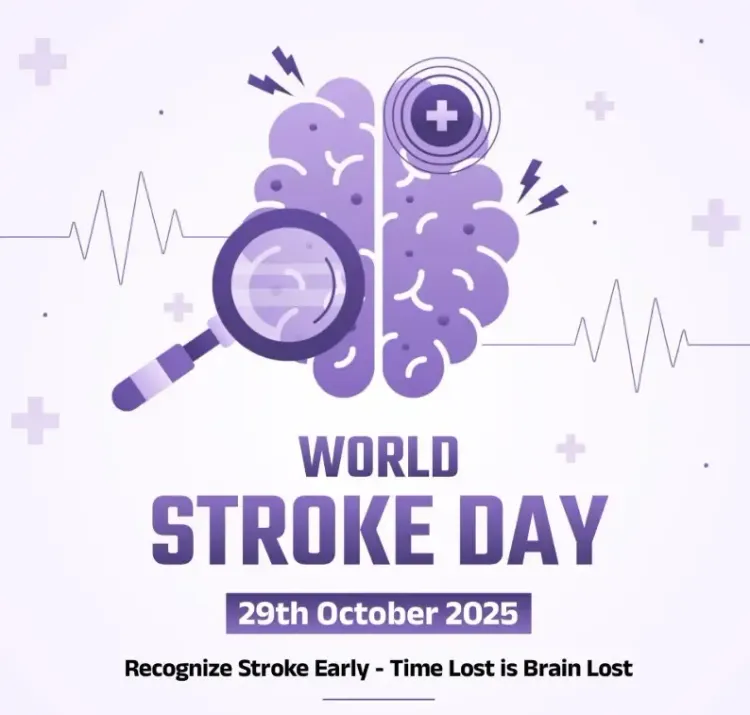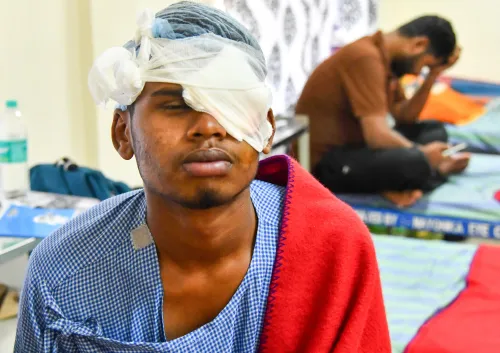How can eating right, staying active, and managing stress lower stroke risk?

Synopsis
Key Takeaways
- Healthy eating significantly lowers stroke risk.
- Regular physical activity can prevent strokes.
- Stress management is crucial for health.
- Immediate medical attention is essential for stroke survival.
- Up to 90% of strokes are preventable through lifestyle changes.
New Delhi, Oct 29 (NationPress) Consuming a balanced diet, engaging in regular physical activity, and effectively managing stress are crucial steps to lower the likelihood of strokes, stated Union Health Minister JP Nadda on World Stroke Day this Wednesday.
World Stroke Day is recognized annually on October 29 to promote awareness regarding the prevention and treatment of strokes, while also ensuring improved care and support for those who survive. This year's theme is 'Every Minute Counts'.
Nadda emphasized that while strokes can strike unexpectedly, they can be prevented through significant lifestyle adjustments.
“On this World Stroke Day, we have a chance to enhance understanding about stroke prevention and the significance of maintaining a healthy lifestyle,” the Health Minister expressed in a message on the social media platform X.
“Strokes can happen abruptly, but many are preventable through small, consistent, healthy choices. By eating nutritiously, staying physically active, and managing stress, we can significantly reduce our risk and lead healthier lives. Let’s seize this day to learn, share, and prioritize our health,” he added.
Strokes occur when the blood supply to the brain is disrupted. During a stroke, brain cells can begin to perish every second; thus, receiving medical assistance promptly, particularly within 4.5 hours—referred to as the Golden Hour—is critical for enhancing survival rates.
If not addressed immediately within this timeframe, it could result in lasting brain damage and disability.
Minister of State for Ayush Prataprao Jadhav underscored the significance of adopting a healthy lifestyle to mitigate the risk of stroke.
“On World Stroke Day, it is vital to remember: A healthy lifestyle is the most effective prevention against stroke. Eat well, stay active, and manage stress. Take charge of your health!” he stated on X.
The World Health Organization emphasized the importance of quitting smoking and reducing alcohol consumption to lower stroke risk. The UN health agency also urged individuals to manage blood pressure and cholesterol, control diabetes, maintain a healthy weight, eat well, and exercise for at least 30 minutes daily to mitigate stroke risk.
Strokes affect approximately 12 million people globally each year and result in over 7 million fatalities. However, up to 90 percent of stroke cases can be prevented through lifestyle changes such as quitting smoking, controlling blood pressure, and exercising.









